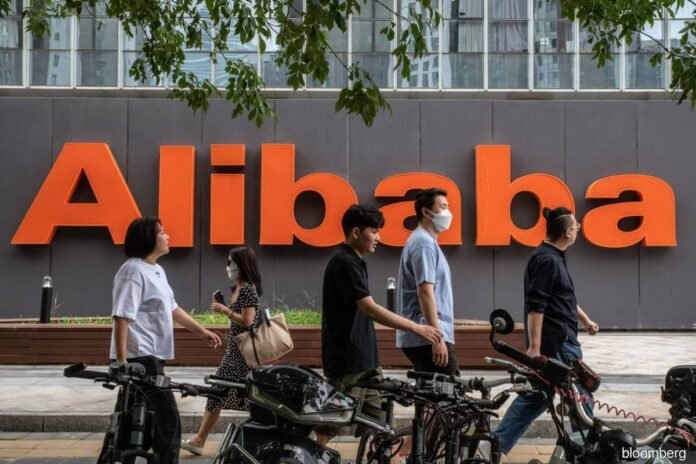This Content Is Only For Paid Member
Alibaba Group Holding Ltd. is grappling with a market value that has dwindled to approximately half of its competitor Tencent Holdings Ltd., underscoring challenges in its e-commerce-focused business marked by lackluster demand and heightened competition. As of the latest data compiled by Bloomberg, Alibaba, with a market capitalization of $201 billion, lags behind Tencent, which is valued at $391 billion. This substantial discrepancy is emphasized by Alibaba’s shares trading around eight times forward earnings multiples, compared to Tencent’s 16 times.
The recent turbulence for Alibaba escalated when it abruptly abandoned plans to spin off its cloud unit, attributing the decision to increased U.S. restrictions on chip sales to China. This unexpected development, coupled with lower-than-anticipated domestic e-commerce sales, triggered a significant 10% decline in Alibaba’s stock in Hong Kong, marking its most substantial drop this year.

The diverging market values of Alibaba and Tencent underscore the regulatory and macroeconomic challenges facing Alibaba. Recent regulatory scrutiny on China’s tech giants, including investigations into Alibaba affiliate Ant Group Co. and a hefty fine imposed on the fintech company, have created a turbulent landscape. Notably, Alibaba’s market value had consistently exceeded Tencent’s before the regulatory crackdown commenced in late 2020.
In contrast, Tencent reported better-than-expected profitability across its key business segments for the third quarter. The Chinese social media giant showcased growth in gaming, advertising, and fintech, leading to a notable 10% uptick in revenue.
Willer Chen, a senior analyst at Forsyth Barr Asia Ltd., highlighted the hurdles Alibaba faces, including China’s modest consumption recovery and intensified competition in the e-commerce sector. Chen also noted that regulatory concerns have weighed on investor sentiment, contributing to the widening gap in market values between Alibaba and Tencent.




